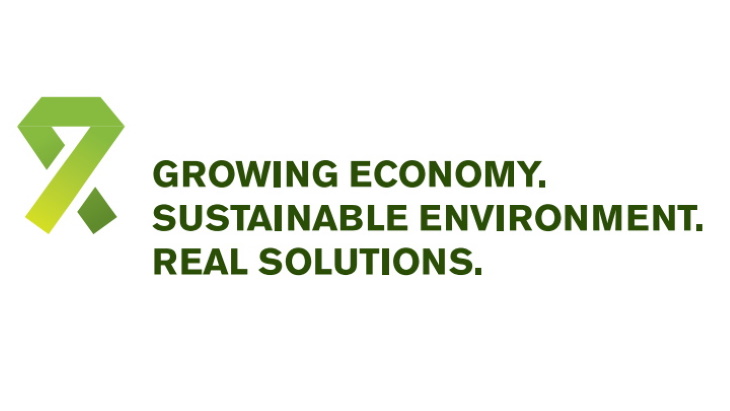Green Ribbon Panel establishes guiding principles
15 July 2020
Canada's Green Ribbon Panel has developed four principles it believes are necessary to change the conversation around climate, energy and the economy. The panel - formed in February by a collection of environmental and economic leaders - will focus on the role nuclear with other technologies that anchor Canada's energy sector can play in fighting climate change and growing the economy at home and abroad.
 The panel's logo (Image: Green Ribbon Panel)
The panel's logo (Image: Green Ribbon Panel)
The four principles include: embracing the urgent need to address climate change is the foundation for action; Ontario is well-positioned to build the clean electricity system that can be a cornerstone of Canada's future low-carbon economy; low-cost, low-carbon emission energy represents a competitive economic advantage for Ontario and Canada; and, the enabling policy frameworks must be diverse and require participation from all levels of government and public-private partnerships.
The Green Ribbon Panel said the agreed-upon principles are the result of a consultative process with panel leaders and individual interviews. With these principles, the panel hopes to contribute to the climate change discussion by providing policy guidance to all levels of government through recommendations which demonstrate that economically-beneficial climate change mitigation will require multi-faceted policy options to support behavioural change, financing, regulation, labour force capability and infrastructure development.
It said the principles will guide its work and a series of reports to be released over the coming months. The panel will evaluate lessons learned from around the world in fighting climate change, explore made-in-Ontario solutions including the province's phase-out of coal, and integrate new data on the impacts of electrification on climate change. It will conduct outreach and research activities to contribute to its report series. The first report of the Green Ribbon Panel will be released in early August and will demonstrate why clean air and climate change are issues that must be addressed in planning now and provide practical, innovative solutions to lowering electricity costs and reducing greenhouse gas emissions in Ontario.
"The consequences of global warming changing our climate are real and severe, from extreme weather events such as droughts and floods to substantive impacts on human health due to toxins from greenhouse gas pollutants," said James Scongack, executive vice-president of corporate affairs and operational services at Bruce Power and chair of the Green Ribbon Panel. "That's why this panel of experts was created to mobilise business and civic leaders to participate in the climate policy discussions and to provide a forum for sharing ideas, lessons and best practices."
About 15% of Canada's electricity comes from nuclear power, with 19 reactors mostly in Ontario providing 13.5 GWe of power capacity.
Researched and written by World Nuclear News